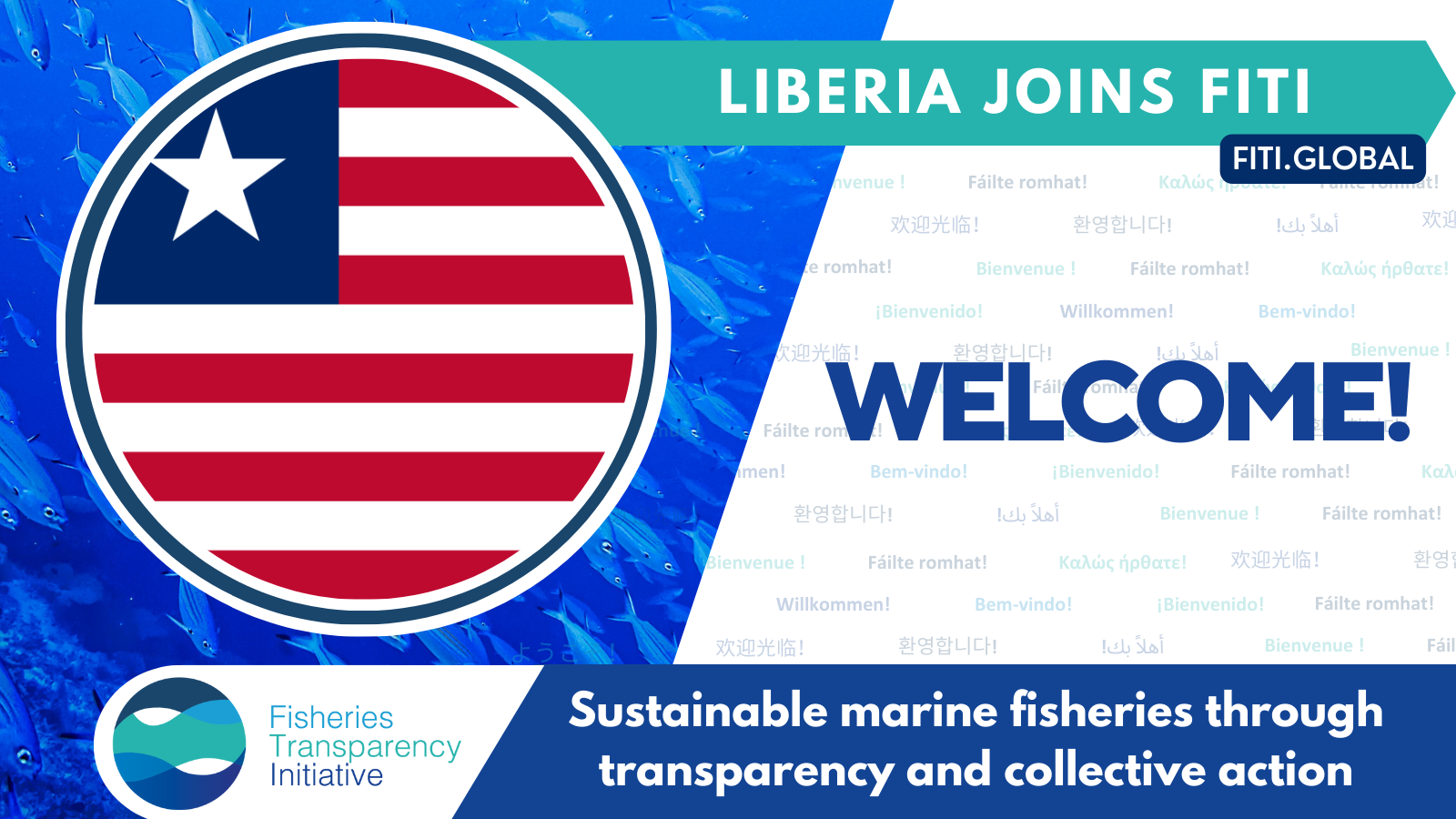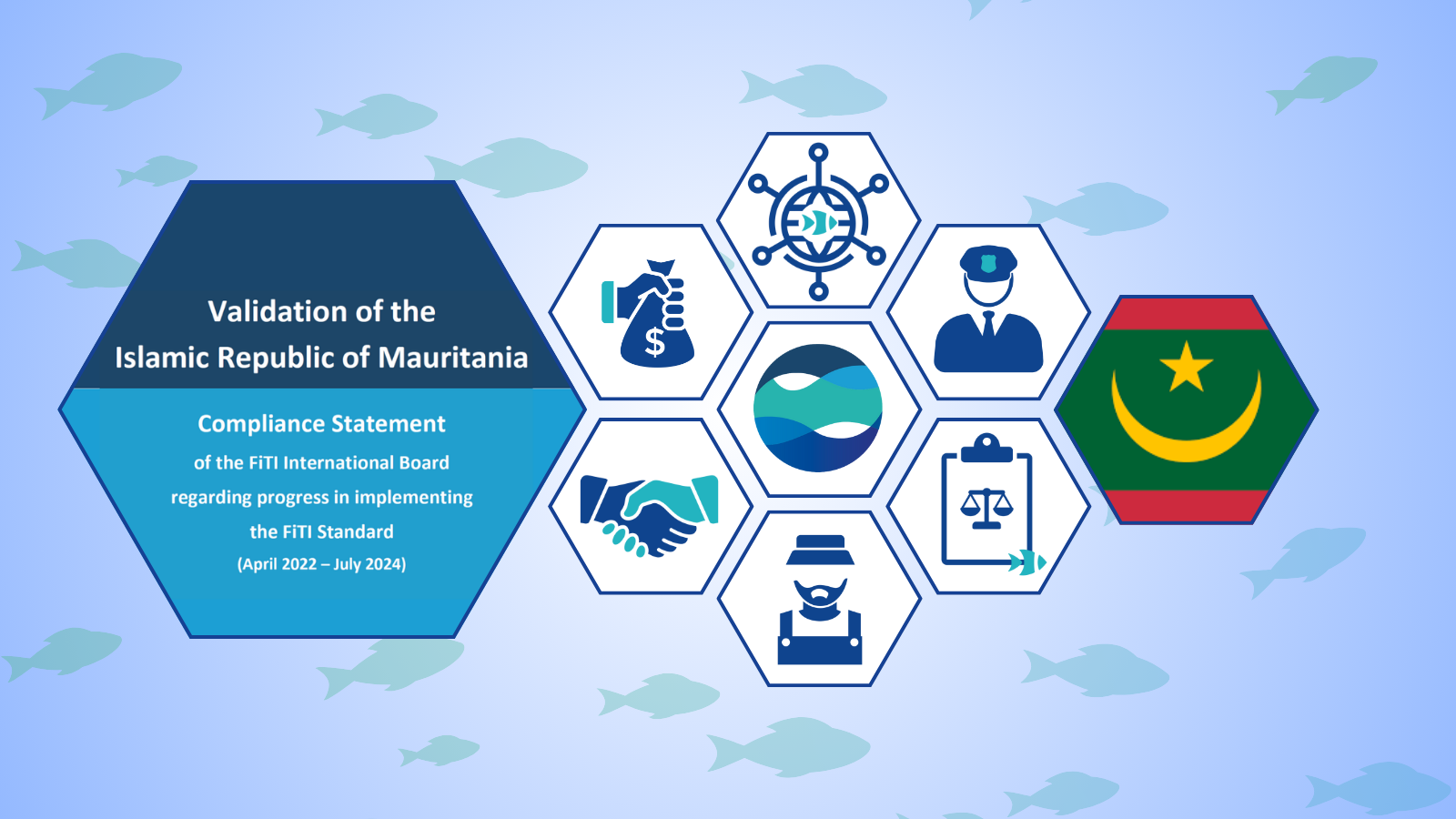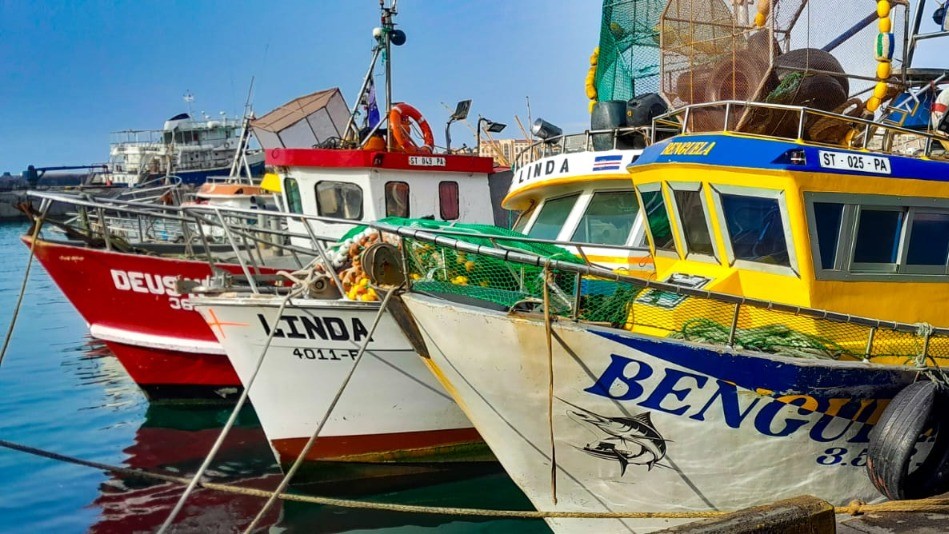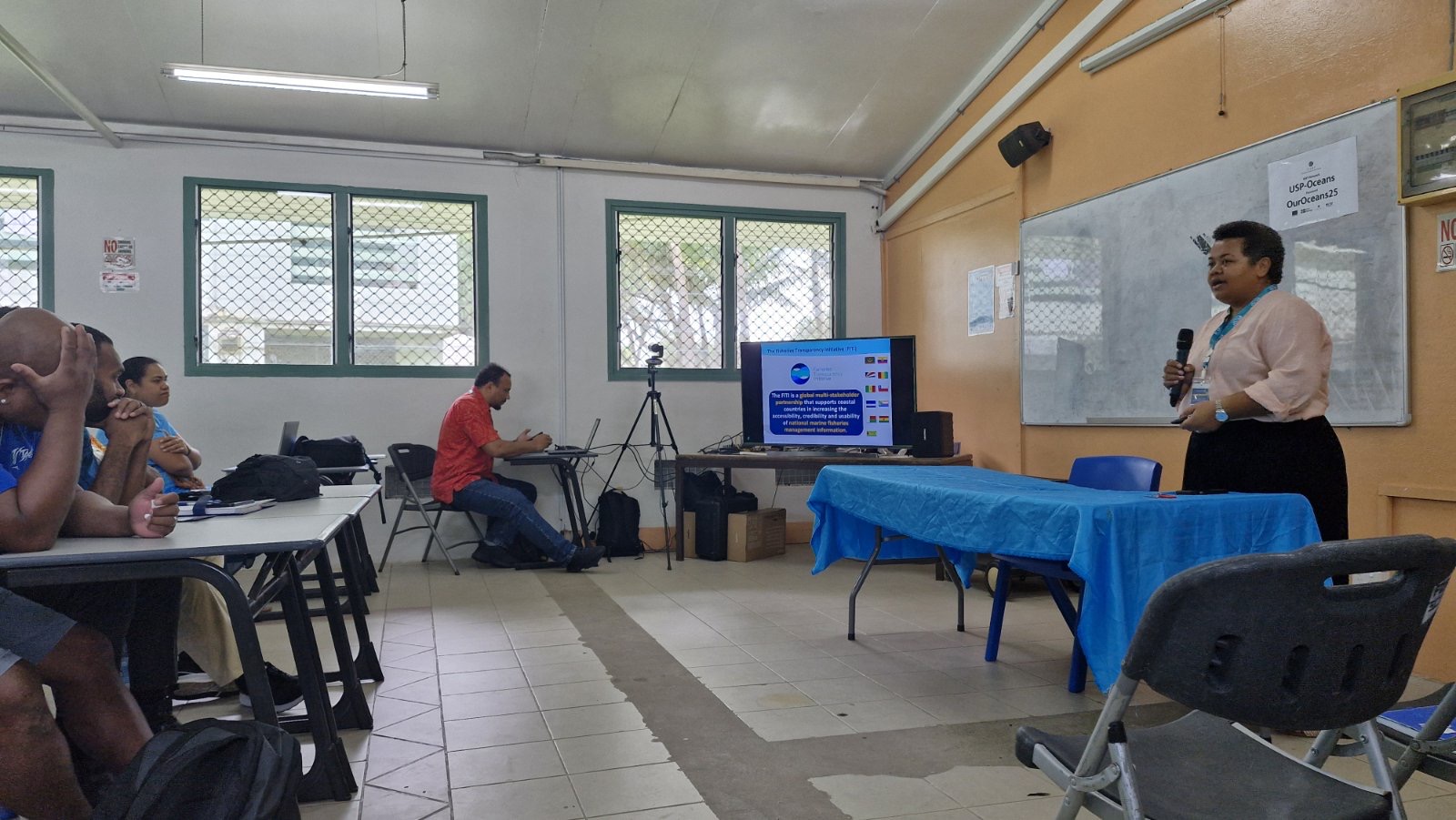
The FiTI focuses on public access to information for 12 thematic areas of marine capture fisheries, such as fishing licenses, vessel registry, catch data, subsidies and beneficial ownership.

The FiTI focuses on public access to information for 12 thematic areas of marine capture fisheries, such as fishing licenses, vessel registry, catch data, subsidies and beneficial ownership.

Transparency needs trust! This is why the FiTI is implemented through National Multi-Stakeholder Groups, equally represented by government, companies and civil society.

Transparency requires a two-sided approach: making data available in the public domain, and ensuring that stakeholders can draw reliable conclusions from it.

Countries are not expected to have complete data for every thematic area from the beginning. Instead, public authorities must disclose the information they have, and where important gaps exist, demonstrate improvements over time.

The FiTI does not replace or duplicate existing government systems. Instead, the need for national authorities to develop and strengthen their own systems for collecting and publishing information online is emphasised.
The FiTI Standard is an internationally recognised framework that sets clear requirements on what is expected from countries regarding transparency in marine fisheries.
It was developed in a 2-year global consultation process with government representatives from fishing nations, industrial and artisanal fishing entities, civil society and intergovernmental organisations.

The Fisheries Transparency Initiative (FiTI) participated in the 3rd annual Ocean Fair, organised by the Danny Faure Foundation.
MONROVIA, 21 May 2025. The Republic of Liberia has taken a significant step towards enhancing fisheries governance by joining the Fisheries Transparency Initiative (FiTI). This commitment demonstrates the country’s political will to improve transparency and participation for the benefit of a more sustainable management of its marine fisheries. The commitment was formalised by signing a […]


Mauritania has become the second country globally to achieve an overall compliant status in implementing the FiTI Standard.
The FiTI International Secretariat was invited to present Cabo Verde’s 2nd FiTI Report at the quarterly meeting with all UN agencies operating in the country.


The FiTI presented at the Regional Conference on Advancing Ocean Learning: Navigating Knowledge in the Pacific at the University of the South Pacific.
The Cabo Verde Embassy, in partnership with the FiTI, the Irish Embassy in Lisbon and the CPLP, recently held a seminar to promote the publication of Cabo Verde’s 2nd FiTI Report.


The FiTI moderated a panel on transparency and the need for cooperation among stakeholders during La Semana de la Pesca Sostenible in Buenos Aires, Argentina.
Governments committed to implement the FiTI Standard
Fisheries information published by National Multi-Stakeholder Groups (e.g. FiTI Reports)
Stakeholders engaged in National Multi-Stakeholder Groups
Country validations conducted to assess compliance against FiTI Standard
transparency briefings (short 'tBriefs') published in English, French, Spanish
TAKING STOCK country transparency assessments conducted